Find Help
More Items From Ergsy search
-
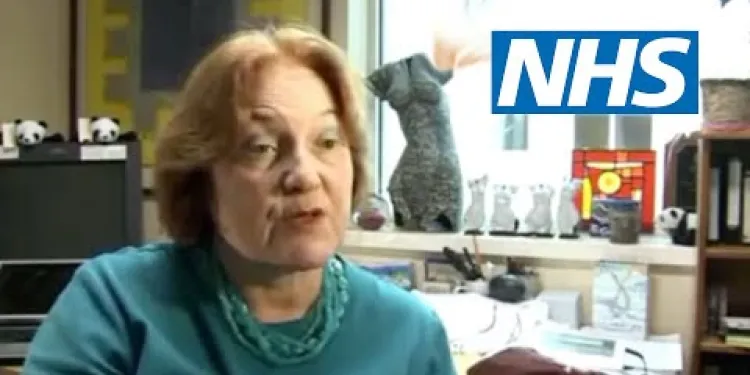
Anorexia nervosa | NHS
Relevance: 100%
-
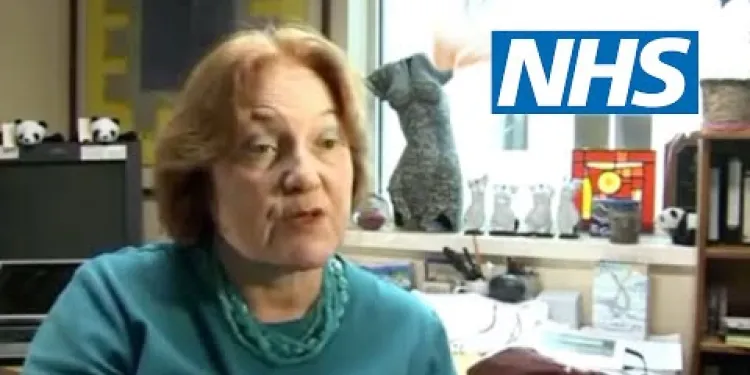
Anorexia nervosa | NHS
Relevance: 99%
-
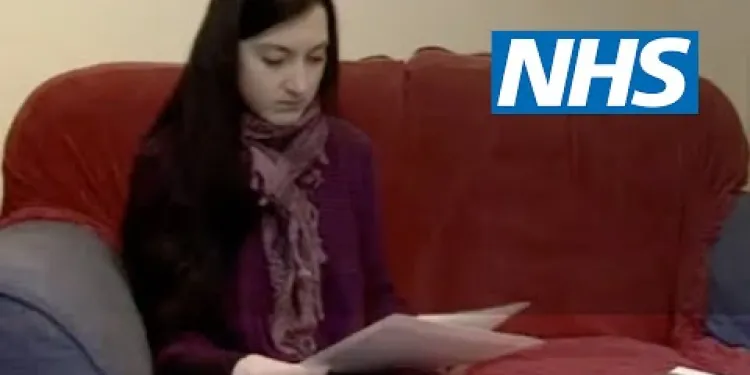
Anorexia: Katie's story | NHS
Relevance: 97%
-
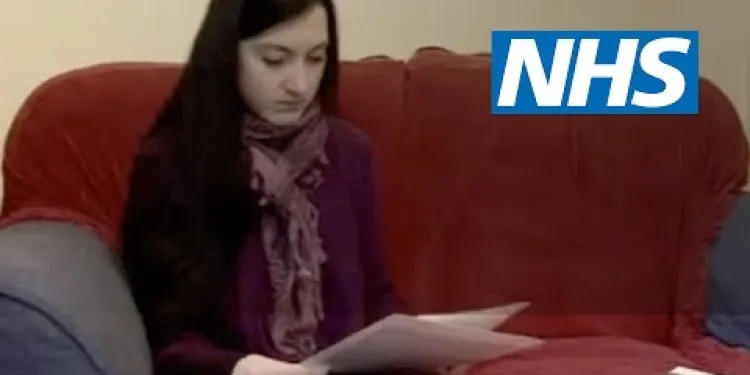
Anorexia: Katie's story | NHS
Relevance: 97%
-
What are the main types of eating disorders?
Relevance: 37%
-
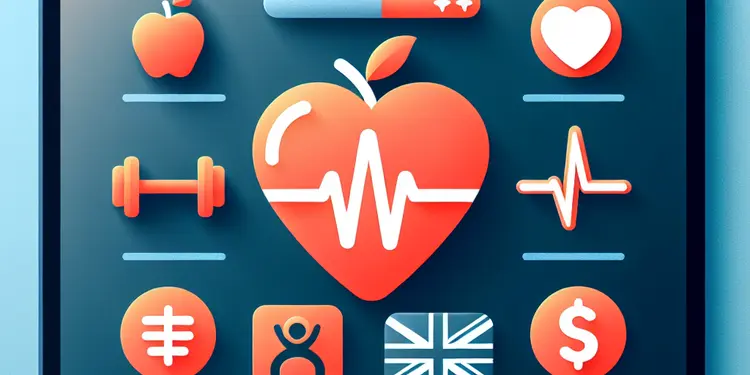
What is the impact of eating disorders on physical health?
Relevance: 35%
-
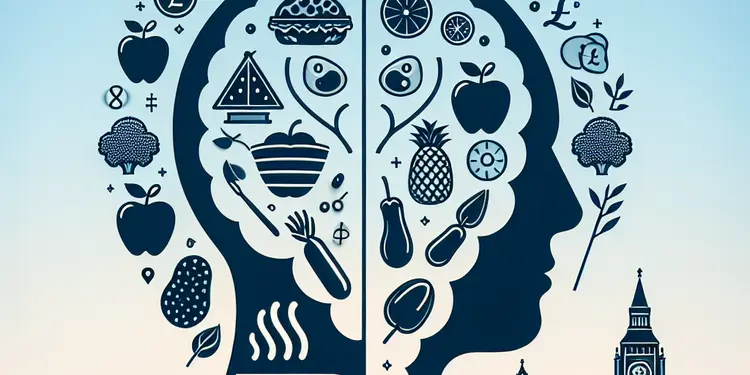
How do eating disorders affect mental health?
Relevance: 28%
-
What is an eating disorder?
Relevance: 26%
-
What are the long-term effects of untreated eating disorders?
Relevance: 25%
-
How are eating disorders diagnosed?
Relevance: 23%
-
Can eating disorders be treated?
Relevance: 22%
-
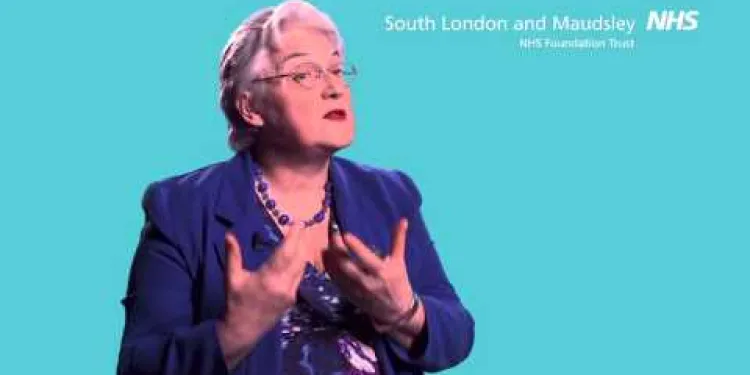
Eating disorders: treatment
Relevance: 19%
-
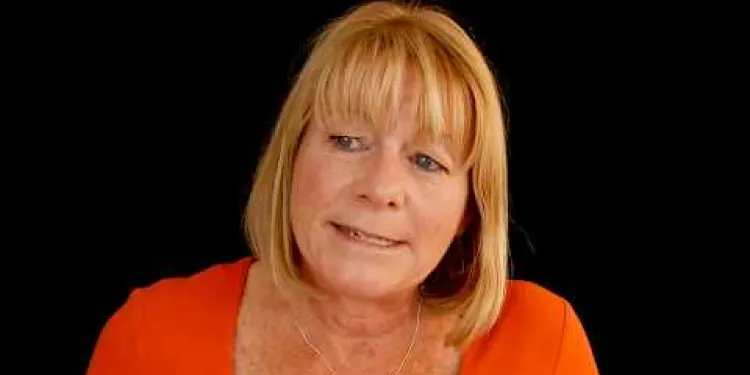
The treatment approach for an eating disorder
Relevance: 19%
-
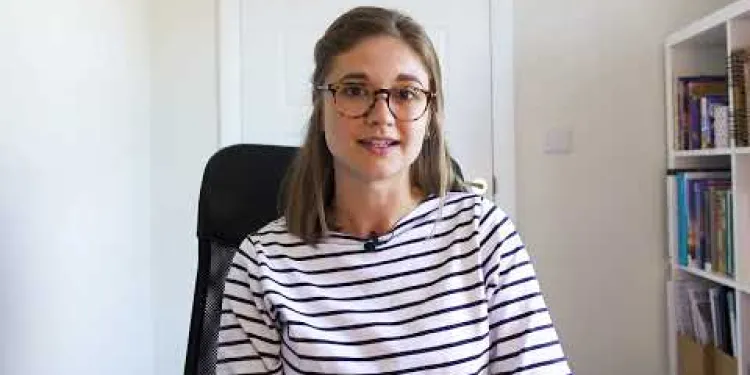
Jess Rann - Specialist Eating Disorders Dietitian
Relevance: 19%
-
What is an Eating Disorder?
Relevance: 18%
-
What is body dysmorphia and how is it related to eating disorders?
Relevance: 18%
-
Is it possible to recover from an eating disorder?
Relevance: 13%
-
Can eating disorders occur with other mental health conditions?
Relevance: 13%
-
How can someone help a loved one with an eating disorder?
Relevance: 13%
-
What are common symptoms of eating disorders?
Relevance: 13%
-
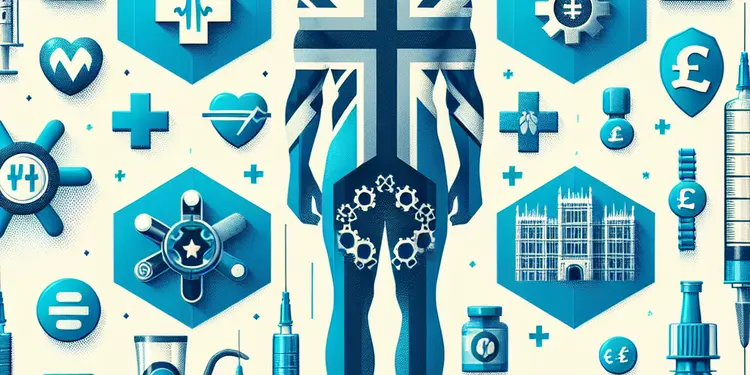
Are there any medical conditions that disqualify someone from using weight loss jabs?
Relevance: 13%
-
What is the role of therapy in treating eating disorders?
Relevance: 13%
-
Who is at risk for developing an eating disorder?
Relevance: 12%
-
Are eating disorders only about food?
Relevance: 12%
-
Are there preventative measures for eating disorders?
Relevance: 12%
Anorexia: Katie's Story
Introduction to Anorexia
Anorexia nervosa is a serious mental health condition characterised by restrictive eating, an intense fear of gaining weight, and a distorted body image. It not only affects physical health but also mental wellbeing. This disorder can lead to severe consequences if not treated effectively.
Katie’s Journey
Katie's story is a poignant illustration of the challenges and triumphs faced by those battling anorexia in the United Kingdom. At the age of 17, Katie began her struggle with anorexia. What started as a seemingly harmless attempt to lose a few pounds quickly spiraled into a life-threatening condition. Katie's weight plummeted, and her energy levels declined dramatically. The psychological effects were equally devastating; she became increasingly withdrawn and isolated from friends and family.
The Turning Point
The turning point in Katie’s journey came when her family intervened. Recognizing the severity of her condition, they sought professional help through the NHS. Katie was admitted to a specialised eating disorder unit where she received comprehensive care. This included medical monitoring, nutritional guidance, and psychological therapy.
Role of the NHS
The NHS played a crucial role in Katie’s recovery. With dedicated healthcare professionals and structured treatment plans, Katie slowly began to rebuild her strength. NHS services provided her with the necessary tools to understand and combat her illness. The multidisciplinary approach included working with dietitians, therapists, and doctors to ensure a well-rounded treatment.
Recovery and Awareness
After a long and challenging journey, Katie emerged stronger and more aware of her triggers and coping strategies. Her story highlights the importance of seeking help early and the effective role that the NHS can play in treating anorexia. Katie now advocates for awareness around eating disorders, encouraging others in the UK to speak up and seek help if they are struggling.
Getting Help
If you or someone you know is struggling with anorexia, it is essential to seek help immediately. The NHS provides numerous resources and support networks. Early intervention can make a significant difference in recovery. Visit the NHS website or consult with your GP for more information on available treatments.
Anorexia: Katie's Story
What is Anorexia?
Anorexia is a health problem that affects how you feel about food and your body. People with anorexia might eat very little, worry a lot about gaining weight, and see their body differently to how it really is. Anorexia can make both your body and mind very sick. It is important to get help to feel better.
Katie’s Story
Katie lives in the UK. Her story shows how hard it can be to fight anorexia. Katie was 17 years old when she started to eat less to lose weight. It got worse, and her health became very bad. She lost a lot of weight and felt very tired all the time. Katie also felt very sad and stopped talking to her friends and family.
How Katie Got Help
Katie got help when her family noticed she was very sick. They went to the NHS for help. Katie went to a special place where doctors helped her with food and feelings. She talked to doctors and other helpers to get better.
NHS and Recovery
The NHS helped Katie a lot. Doctors and nurses made a plan to help her get stronger. They helped with food plans, talking therapy, and medical care. The NHS team worked together to help Katie feel better.
Getting Better and Helping Others
After a long time, Katie felt stronger. She learned what makes her stressed and how to cope. Katie now tells other people about anorexia. She thinks it is important to ask for help if you feel like she did. She wants to help others not to feel alone.
Where to Get Help
If you or someone you know feels like Katie did, it is important to talk to someone. The NHS has many ways to help you. Getting help early can make a big difference. You can visit the NHS website or talk to your doctor for more help.
Frequently Asked Questions
What is anorexia?
Anorexia is an eating disorder characterized by an extremely low body weight, an intense fear of gaining weight, and a distorted view of body weight and shape.
Who can be affected by anorexia?
Anorexia can affect anyone, but it most commonly begins during the teenage years and is more prevalent in females.
What are common signs of anorexia?
Common signs include significant weight loss, preoccupation with food, dieting, or body size, excessive exercise, and avoidance of social situations involving food.
What causes anorexia?
The exact cause of anorexia is unknown, but it is believed to be a combination of genetic, environmental, and psychological factors.
How is anorexia diagnosed?
Anorexia is diagnosed through a combination of physical exams, psychological evaluations, and assessments of eating habits.
What are the health risks associated with anorexia?
Health risks include anaemia, heart problems, osteoporosis, organ failure, and, in severe cases, death.
Can anorexia be treated?
Yes, anorexia can be treated through a combination of psychological therapy, medical treatment, and nutritional counseling.
What types of therapy are used in treating anorexia?
Common therapies include cognitive behavioural therapy (CBT), family-based therapy (FBT), and individual psychotherapy.
What role does family play in the treatment of anorexia?
Family support is crucial in the treatment of anorexia, especially in therapies like family-based therapy (FBT) where family involvement is integral to recovery.
How can friends support someone with anorexia?
Friends can provide emotional support, encourage seeking professional help, avoid discussing weight or body image topics, and offer to accompany them to appointments.
What should someone do if they suspect they have anorexia?
If someone suspects they have anorexia, they should seek help from a healthcare professional immediately for an assessment and appropriate treatment.
Can recovery from anorexia be achieved?
Yes, people can and do recover from anorexia, but it often requires comprehensive treatment and ongoing support.
Are there support groups for people with anorexia in the UK?
Yes, there are numerous support groups and organisations in the UK that provide support for people with anorexia and their families.
Is hospitalization ever necessary for someone with anorexia?
In severe cases, hospitalization may be necessary to address malnutrition, medical complications, and to provide intensive treatment.
How can someone maintain recovery from anorexia?
Maintaining recovery involves ongoing therapy, a strong support system, healthy coping mechanisms, and monitoring by healthcare professionals.
What is anorexia?
Anorexia is an illness. It makes people not want to eat. They become very thin. It can make them very sick. It is important to get help if you or someone you know has anorexia. Talking to a doctor or a teacher can help. Reading books or watching videos about it can also help you understand.
Anorexia is a serious problem with eating. It makes people very, very thin. They are very scared of getting fat. They don’t see their bodies the way they truly are.
Who can get anorexia?
Anorexia can happen to anyone. It does not matter if you are a boy or a girl, young or old. It can affect people of any age, race, or background.
If you or someone you know is worried about anorexia, it is good to talk to a doctor or a grown-up you trust. They can help you find the right support.
Using pictures or talking with someone you trust can make it easier to understand more about anorexia.
Anorexia can happen to anyone. But it often starts when people are teenagers. It is more common in girls.
What are signs of anorexia?
Anorexia is an illness that makes people afraid to gain weight. It can make them eat very little. Here are some things you might notice:
- They eat tiny amounts.
- They seem too focused on food, dieting, or their weight.
- They look much thinner than before.
- They may get upset when talking about food.
- They might try to hide food or say they already ate.
If you think someone has anorexia, it is good to talk to a grown-up or a doctor. They can help.
Here are some signs to look out for: losing a lot of weight, thinking about food or dieting all the time, worrying about body size, exercising too much, and not wanting to be around people when there is food.
Why do people get anorexia?
Anorexia is a sickness that makes people not want to eat. Here are some reasons why it might happen:
- Feelings: People might be very sad or worried.
- Body image: Some people do not like how their body looks.
- Control: Eating less can make someone feel like they are in charge.
- Pressure: Friends, family, or online pictures might make people think they need to be thinner.
Here are some things that can help:
- Talk to someone you trust about your feelings, like a friend or teacher.
- See a doctor or counselor who can help with these feelings.
- Remember that you are special just the way you are.
The exact cause of anorexia is not known. But people think it happens because of a mix of genes, things around us, and how we feel inside.
How do doctors know if someone has anorexia?
Doctors find out if someone has anorexia by doing three things:
1. Checking the person’s body with a physical exam.
2. Talking to the person about their thoughts and feelings. This is called a psychological evaluation.
3. Asking questions about what the person eats and their eating habits.
What are the health dangers of anorexia?
Anorexia is an illness that makes people afraid of gaining weight. Here are some health problems it can cause: - **Body Weakness:** People can feel very tired and weak. - **Bone Problems:** Bones become thin and can break easily. - **Heart Issues:** The heart can get hurt and may not work properly. - **Hair and Skin:** Hair might fall out, and skin can get dry. To feel better, people can: - **Talk to a Doctor:** Doctors can help with the right care and advice. - **Get Support:** Talking to someone you trust can help. - **Eat Healthy Food:** Eating the right food helps the body stay strong. Tools that can help: - **Healthy Eating Guides:** These can show what foods are good for you. - **Support Groups:** Joining a group can let people share their feelings.Health risks include: low iron in your blood (anaemia), heart problems, weak bones (osteoporosis), organs inside your body not working, and, if very bad, death.
Can anorexia be helped?
Yes, anorexia can be helped. It is important to talk to a doctor or a therapist. They can help make a plan to get better.
Here are some ways to help treat anorexia:
- Talking to a therapist or counselor
- Eating healthy meals with the help of a nutritionist
- Joining support groups to talk with others
It is important to get help early. Friends and family can support too.
Yes, anorexia can be treated. To get better, people need help in three ways:
1. Talking Therapy - Talking to someone who can help with feelings and thoughts.
2. Medical Help - Doctors can look after the body and keep it healthy.
3. Nutrition Help - Learning to eat the right food so the body gets strong.
Using apps or tools to help remember to eat may be useful. Drawing or writing feelings can also help.
What kinds of help are used to treat anorexia?
Here are some ways people can get help for anorexia:
- Talking therapy: Talk to someone who can help, like a doctor or therapist.
- Family support: Talk with your family and get their help.
- Group meetings: Meet with others who understand and can support you.
If you need more help, you can use some tools:
- Apps on your phone to track eating and feelings.
- Write in a diary.
- Get reminders from trusted people to eat regularly.
Some common types of therapy are:
- CBT: This helps you change bad thoughts to good ones.
- FBT: This is when your family helps you get better.
- Individual therapy: You talk alone with a therapist.
Here are some things that can help you when reading:
- Use a ruler or finger to help keep your place.
- Take breaks so you don't get too tired.
- Ask someone to read with you or explain words you don't understand.
How can family help someone with anorexia?
Family is very important when someone has anorexia. They can help in many ways:
- Provide love and support. Being kind and understanding is very important.
- Encourage healthy eating. Families can help plan and eat meals together.
- Go to doctor visits. Family can go with the person to see doctors or therapists.
- Learn about anorexia. Knowing more about the illness can help everyone do better.
- Be patient. Getting better from anorexia takes time.
Families can use tools like:
- Talk to therapists who help with eating issues.
- Read books or watch videos about anorexia.
- Join support groups to meet other families.
Remember, family can really help someone get better!
It's really important for family to help when someone has anorexia. Family being there makes a big difference, especially in special talks called family-based therapy (FBT). In these talks, families learn how to help the person get better.
How can friends help someone with anorexia?
Anorexia is when a person doesn't eat enough food because they want to be really thin.
If your friend has anorexia, you can help them. Here are some easy ways to do that:
- Talk to them and listen. Let them know you care.
- Don't judge them. Say nice and kind words.
- Ask if they want to see a doctor. A doctor can help.
- Spend time with them doing fun things that don’t involve food.
- Be patient. Getting better takes time.
Remember, being a good friend means being there for them. Encourage them to talk to grown-ups or professionals who can help.
Friends can help in a few ways. They can listen when you feel sad and support you. They can say it's okay to ask a doctor or counselor for help. It’s good not to talk about weight or bodies. Friends can also go with you to appointments if you want.
What to do if you think you have anorexia?
If you think you have anorexia, tell an adult you trust. This could be a parent, teacher, or doctor. They can help you get better.
You can also talk to a doctor or nurse. They can give you advice and support.
Try to learn more about anorexia. Ask questions if you are unsure about something. It's okay to ask for help.
There are apps and websites that can help you understand your feelings, like Calm or Headspace. They have exercises to help you relax.
If you think you have anorexia, it is important to talk to a doctor or nurse. They can check how you are feeling and help you get better.
Can people get better from anorexia?
Yes, people can get better from anorexia. They need help and support for a long time.
Are there support groups for people with anorexia in the UK?
Yes, there are places in the UK where people with anorexia can get help and talk to others. These places are called support groups.
Support groups are safe places where people can share their feelings and get advice. It can help to talk to others who understand.
Some well-known groups in the UK are Beat (www.beateatingdisorders.org.uk) and Anorexia & Bulimia Care (www.anorexiabulimiacare.org.uk). They have phone lines, online chats, and meetings.
Talking to someone you trust, like a family member or teacher, can also help. They can help you find a support group.
Yes, there are many groups and organisations in the UK that help people with anorexia and their families.
Do people with anorexia ever need to go to the hospital?
When someone has anorexia, sometimes they might need to stay in the hospital. This can happen if:
- They are very, very skinny and it is not safe for them.
- They need help eating and getting enough food.
- They need special care so that their body can be healthy again.
Some helpful tools and ways to support someone with anorexia are:
- Talking to doctors or nurses who know about anorexia.
- Visiting therapists or counselors for advice and support.
- Having a family member or friend to help with meals and eating.
If someone is very sick, they might need to go to the hospital. At the hospital, doctors can help with problems like not having enough food, other health issues, and give special care and treatment.
How can someone stay better after having anorexia?
Staying better after anorexia means keeping healthy habits and thoughts. Here are some tips:
- Eat Regular Meals: Make sure to eat breakfast, lunch, and dinner every day.
- Be Kind to Yourself: Say nice things to yourself and remember that everyone is different.
- Talk to Someone: Talk to a friend or a family member if you feel worried or sad.
- Keep Seeing Your Doctor: Your doctor or therapist can help you stay healthy.
- Learn About Eating Well: Learn what foods are good for your body and make you feel strong.
Remember, it’s okay to ask for help. There are tools and people who can help you stay healthy.
To keep getting better, you can do a few things:
- Go to therapy regularly.
- Have good friends and family to help you.
- Learn ways to deal with stress.
- Visit doctors or nurses who can check how you're doing.
These steps can help you stay healthy and strong.
Useful Links
This website offers general information and is not a substitute for professional advice.
Always seek guidance from qualified professionals.
If you have any medical concerns or need urgent help, contact a healthcare professional or emergency services immediately.
Some of this content was generated with AI assistance. We’ve done our best to keep it accurate, helpful, and human-friendly.
- Ergsy carfully checks the information in the videos we provide here.
- Videos shown by Youtube after a video has completed, have NOT been reviewed by ERGSY.
- To view, click the arrow in centre of video.
- Most of the videos you find here will have subtitles and/or closed captions available.
- You may need to turn these on, and choose your preferred language.
- Go to the video you'd like to watch.
- If closed captions (CC) are available, settings will be visible on the bottom right of the video player.
- To turn on Captions, click settings .
- To turn off Captions, click settings again.
More Items From Ergsy search
-

Anorexia nervosa | NHS
Relevance: 100%
-

Anorexia nervosa | NHS
Relevance: 99%
-

Anorexia: Katie's story | NHS
Relevance: 97%
-

Anorexia: Katie's story | NHS
Relevance: 97%
-
What are the main types of eating disorders?
Relevance: 37%
-

What is the impact of eating disorders on physical health?
Relevance: 35%
-

How do eating disorders affect mental health?
Relevance: 28%
-
What is an eating disorder?
Relevance: 26%
-
What are the long-term effects of untreated eating disorders?
Relevance: 25%
-
How are eating disorders diagnosed?
Relevance: 23%
-
Can eating disorders be treated?
Relevance: 22%
-

Eating disorders: treatment
Relevance: 19%
-

The treatment approach for an eating disorder
Relevance: 19%
-

Jess Rann - Specialist Eating Disorders Dietitian
Relevance: 19%
-
What is an Eating Disorder?
Relevance: 18%
-
What is body dysmorphia and how is it related to eating disorders?
Relevance: 18%
-
Is it possible to recover from an eating disorder?
Relevance: 13%
-
Can eating disorders occur with other mental health conditions?
Relevance: 13%
-
How can someone help a loved one with an eating disorder?
Relevance: 13%
-
What are common symptoms of eating disorders?
Relevance: 13%
-

Are there any medical conditions that disqualify someone from using weight loss jabs?
Relevance: 13%
-
What is the role of therapy in treating eating disorders?
Relevance: 13%
-
Who is at risk for developing an eating disorder?
Relevance: 12%
-
Are eating disorders only about food?
Relevance: 12%
-
Are there preventative measures for eating disorders?
Relevance: 12%


